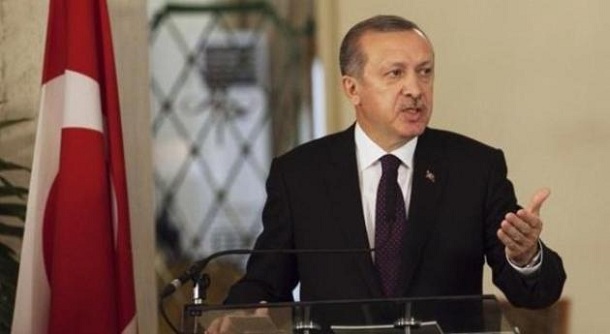Turkey’s tired of waiting for the gate the EU as well as the attractiveness of the European economy is already lost, Ankara wants to turn direction of the brighter horizons and the largest choice in Shanghai Cooperation Organization.
The Shanghai Cooperation Organization (SCO) is not an alternative to the European Union, two of Turkey’s top officials said yesterday, as the prime minister said the way the EU had strung Turkey along was unforgivable and no longer bearable.
President Abdullah Gül reiterated the Shanghai Five, or SCO, and the EU are not alternatives to each other. “Unfortunately, the negotiation process [with the EU] is not proceeding as we wished due to the prejudiced manners of some member states. The prime minister reproaches that first of all,” Gül said yesterday at a press conference with his Serbian counterpart Tomislav Nikolic in Ankara.
Turkey aims to conclude the process of negotiations with the EU successfully and then allow anyone to take it to referendum for a yes or no vote, Gül said. “At the moment Turkey is a country that works to implement more EU criteria. We’ve had some deficiencies and we are trying to fix them with new legislations.” he said.
Prime Minister Recep Tayyip Erdoğan echoed Gül’s words, while criticizing the slow negotiation process.
He restated that Turkey is already a dialogue partner of the Shanghai Cooperation Organization and the organization is not only a security oriented but an economic and cooperation union. “These are not alternatives to each other.”
Erdoğan raised the issue Jan. 25 of possible membership in the SCO, considering it an alternative to the EU at a time when hopes regarding the EU process are diminishing as a number of EU member states adamantly oppose Turkey’s membership.
Erdoğan also criticized the EU’s stance toward Turkey.
Speaking in Prague on the first day of a trip to central Europe, the prime minister said Turkey had originally begun talks on integration in 1963. The fact that the process was still dragging on was a particular slight because millions of Turkish people already live in EU states, he said.
[adrotate banner=”55″]
 Investigations against Martin Sellner
Investigations against Martin Sellner “Whoever wins Pennsylvania will be president”
“Whoever wins Pennsylvania will be president” Pro-Western president wins in Moldova – EU relieved
Pro-Western president wins in Moldova – EU relieved Cem Özdemir wants to be the top candidate in the state elections
Cem Özdemir wants to be the top candidate in the state elections